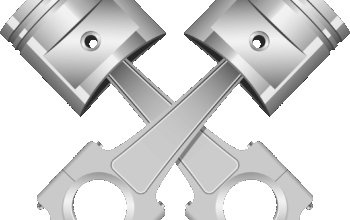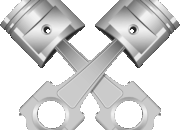Embarking on a career as a surgeon entails a profound commitment to rigorous education and unparalleled responsibilities. Mindful of the multifaceted nature of this decision, aspiring medical professionals often find themselves deliberating between two illustrious paths: neurosurgery and cardiothoracic surgery. Each discipline encapsulates its own unique challenges, skill sets, and rewards. Consequently, a comprehensive examination of the distinctions and overlaps between these fields is essential for potential candidates. This exploration will elucidate the intricacies of both specialties and aid in informed decision-making.
1. Understanding the Fundamentals:
Neurosurgery centers on the intricate anatomy and physiology of the nervous system, including the brain, spinal cord, and peripheral nerves. Neurosurgeons diagnose and treat a plethora of conditions ranging from traumatic brain injuries to complex spinal deformities and tumors. This specialty requires a mastery of sophisticated diagnostic tools, including MRI and CT imaging, coupled with an acute understanding of neuroanatomy.
Conversely, cardiothoracic surgery focuses on the chest, particularly the heart and lungs. Heart surgeons, or cardiothoracic surgeons, operate on conditions such as coronary artery disease, congenital heart defects, and valvular pathology. The discipline demands not only surgical precision but also cardiovascular physiology expertise to manage patients preoperatively, intraoperatively, and postoperatively.
2. Educational Trajectory:
The path to becoming a neurosurgeon or heart surgeon is arduous and extensive. Both disciplines necessitate a medical degree followed by a residency, but the specifics diverge significantly. Neurosurgical residency typically encompasses a seven-year commitment, during which residents acquire in-depth experience spanning various subspecialties. This extended duration allows for exposure to extensive resection techniques and complex reconstructive procedures.
In contrast, cardiothoracic surgery residencies generally require a six to eight-year tenure, depending on whether the surgeon subspecializes in pediatric cardiothoracic surgery or focuses on adult populations. Aspiring heart surgeons must also complete a general surgery residency prior to entering cardiothoracic training, culminating in an equivalently rigorous educational process.
3. The Nature of Surgical Procedures:
When considering the types of surgical interventions performed, prospective candidates might be swayed by their affinity for particular types of procedures. Neurosurgery is characterized by an array of minimally invasive techniques, such as stereotactic surgery and endovascular therapies. The intricate nature of these surgeries demands not merely technical dexterity but also the ability to engage in meticulous problem-solving under duress.
Heart surgery, on the other hand, often involves more conventional open-heart procedures, such as coronary artery bypass grafting (CABG) and heart valve repairs. While advances in minimally invasive approaches have emerged, the traditional heart surgery repertoire encompasses high-stakes operations requiring not only adept hands but also physiological vigilance during cardiopulmonary bypass.
4. Patient Demographics and Emotional Engagement:
The patient populations encountered in these fields also diverge significantly. Neurosurgeons often treat a diverse array of patients, spanning different age groups from infants with congenital anomalies to elder individuals suffering from degenerative diseases. This breadth facilitates a dynamic interaction with various demographics. Furthermore, neurological conditions frequently necessitate long-term patient relationships, requiring emotional intelligence and empathy during recovery processes.
Conversely, cardiothoracic surgeons often engage with adult populations grappling with lifestyle-related health issues, such as atherosclerosis due to diabetes and obesity. These encounters frequently entail preventive education regarding cardiovascular health, allowing the surgeon to become an advocate for significant lifestyle changes.
5. Work-Life Balance and Lifestyle Considerations:
Both neurosurgery and cardiothoracic surgery are notorious for demanding lifestyles. Long hours, on-call duties, and surgical emergencies can disrupt personal life. Neurosurgeons, with their extended hours in the operating room, contend with unpredictable schedules deeply entwined with the neurological complexities of their patients.
Meanwhile, heart surgeons often experience similar demands but may also find themselves in a particularly intense environment during cardiac emergencies, heightening the work-related stress. It is crucial for aspiring surgeons to reflect on their personal resilience and adaptability in maintaining a work-life balance amidst the inevitable pressures of these esteemed professions.
6. Financial Considerations:
Compensation is a pivotal aspect of any career decision. Generally, both neurosurgeons and cardiothoracic surgeons command high salaries, reflective of their extensive training and skill sets. Neurosurgeons often rank among the highest-paid specialists in the medical field, driven by the complexity and rarity of the conditions they treat. Cardiothoracic surgeons also enjoy lucrative remuneration, though these figures can vary significantly based on geographic location and institutional affiliation.
7. Conclusion: Choosing Your Path:
Ultimately, the choice between becoming a neurosurgeon or a heart surgeon rests on individual passions, aptitudes, and career aspirations. Neurosurgery offers an exploration of the central nervous system with a need for critical thinking and resilience. In contrast, cardiothoracic surgery presents a formidable challenges connected to cardiovascular health, patient education, and operative precision.
Both specialties are profoundly impactful, addressing critical health issues and enhancing the quality of life for myriad patients. A candid self-assessment regarding interests, lifestyle preferences, and emotional resilience should guide the decision-making process, ensuring a fulfilling and impactful career in the intricate world of surgery.







